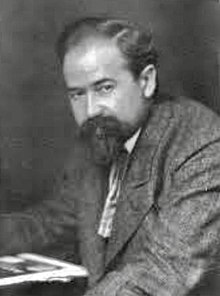Weber, Alfred

Bio: (1868-1958) German sociologist and economist. Alfred Weber has taught at the universities of Berlin, Prague, and Heidelberg. Although heavily influenced by his brother Max Weber, Alfred built his approach, which he called "cultural sociology" (Kultursoziologie). At the beginning of his career, he studied political economy, particularly industry. In his later works, he devoted himself completely to sociology, and his most important work in cultural sociology is Cultural History as Cultural Sociology (in German 1935). Alfred Weber viewed sociology as a science of culture, so he believed that the methods of natural sciences could not be applied to sociology. His opinion is that sociology can determine general concepts and regularities only by carefully studying history, that is, its unique manifestations. Historical reality can be divided into three areas: culture, civilization, and society. Throughout history, separate processes have taken place in each of these three areas. These processes can be separated in the theoretical-analytical sense, but they are, in reality, closely related.
Within the area of society, a "social process" is taking place. Units of analysis in this area are "historical organisms" or "historical areas" (Chinese, Indian, West Asian-Egyptian, Ancient, Arabic, Germanic-Romanesque) that have their own "material unity". "Historical morphology" studies these historical areas and their specifics: the economic organization of society, the structure of the political organization, social transformations, and relations between great people and the masses. Each historical area developed its own specific culture, which was conditioned by specific circumstances important for that society. Factors that shape culture are: human instincts and will, historical circumstances, and geographical and climatic external influences. Societies do not go through an identical social process during their lives, and each of them has a specific attitude towards life, as well as their own developmental path. However, by the comparative study of the social process, in different societies, it is possible to single out some typical forms and sequences of development, and even general trends. Thus, both great events (wars, revolutions, reforms) and "great people" necessarily appear in some typical places and periods of the social process.
Each historical area has its own culture: art, literature, religion, philosophy, value systems, and other cultural emanations. Every culture has its autonomy in relation to society, and cultural history and its development can be understood only "from within itself". Cultural emanations are the product of concrete history and the specific creativity of their creators, and can only be understood historically. All cultural emanations of one historical area together form a "mentally conditioned set of parallel existing symbols". There are no general laws and trends in the world of culture and there is no progress. Cultural emanations cannot simply be transferred to other historical areas. Every relocation of one area of culture to another historical area changes the essence of the symbolic meaning of that area. Weber cites an example of an attempt to move original Buddhism, from the territory of its origin to other historical areas, which led to the emergence of a completely different religion from the original Indian Buddhism.
Civilization and the civilization process constitute the third key area. Weber defines and limits civilization in a very specific way, different from most other sociologists. In his approach, civilization consists of three sub-areas: the intellectually formed image of the world and the ego, the cosmos of pragmatic knowledge, and the intellectual tools for mastering life (technical knowledge). These three parts of civilization and the civilization process are only aspects of the same developmental logic. When the process of civilization begins to move in a certain direction, it continues to move strictly following that developmental logic. Knowledge and intellectual ideas that are acquired in the process of civilization are "pre-existent" phenomena. This means that this knowledge and ideas are not "created", but only "discovered". He thus wants to say that science and technology only reveal facts about the outside world, which already existed before, and were waiting to be "discovered". Scientific knowledge and technical discoveries, unlike cultural emanations, can be fully transferred to other historical areas. The only preconditions for the spread of civilizational knowledge are sufficient psychological (civilizational) development of another historical organism, which adopts new knowledge or technology, as well as the existence of mutual communication between two historical organisms. The process of civilization, in the end, will lead to a single world civilization.
Alfred Weber believed that the social process, the civilization process, and the cultural movement stand in a correlative, dynamic, and reciprocal relationship. In order to understand in detail the specific relations and dynamics of these areas for a particular society, it is necessary to apply the general theoretical scheme, which he developed.
Fields of research
Art Buddhism and Hinduism Civilization Crowd Culture Geography History Industry Instincts Knowledge Psychology Science Sign and Symbol TechnologyTheoretical approaches
Cultural SociologyMain works
Uber den Standort der Industrien (1909);
Gedanken zur deutschen Sendung (1915);
Die Krise des modernen Staatsgedankens in Europa (1925);
Ideen zur Staats und Kultursoziologie (1927);
Kulturgeschichte als Kultursoziologie (1935);
Das Tragische und die Geschichte (1943);
Abschied von der bisherigen Geschichte (1946);
Der dritte oder vierte Mensch: Vom Sinn des geschichtlichen Daseins (1953);
Einführung in die Soziologie (1955).
Works translated into English:
Farewell to European History or the Conquest of Nihilism (1947, in German 1946);
Alfred Weber's Theory of the Location of Industries (2019, in German 1909);
History of Philosophy (2017).

